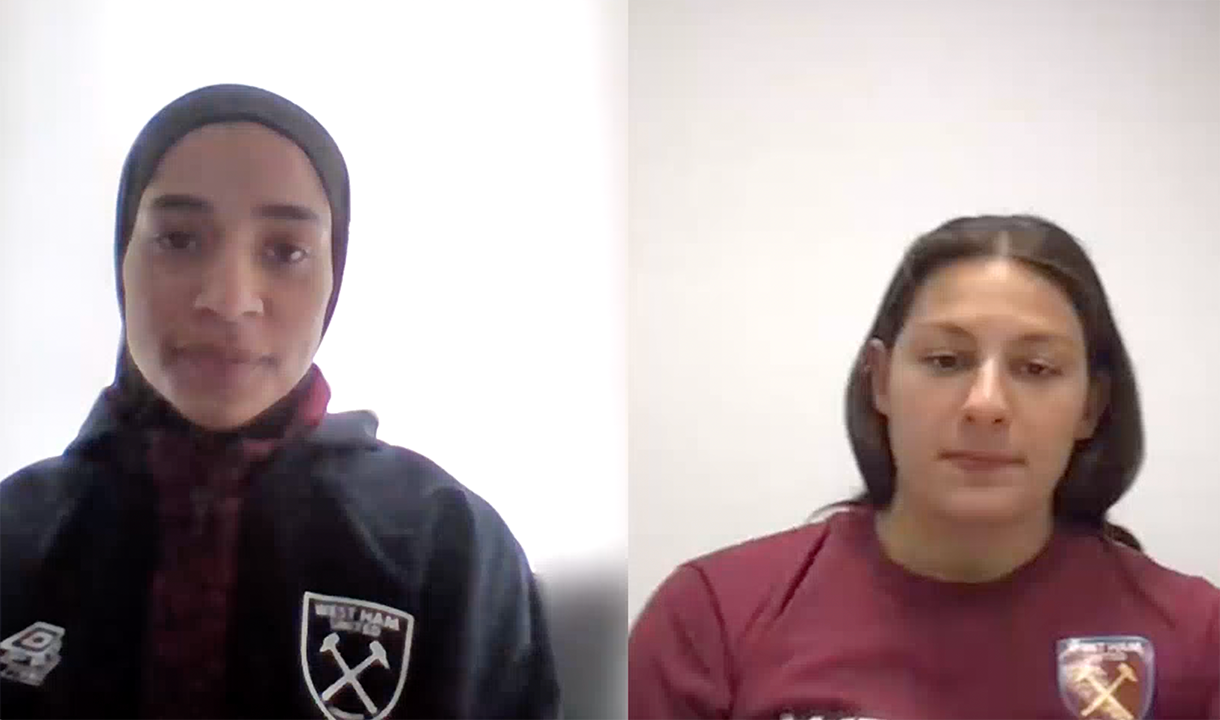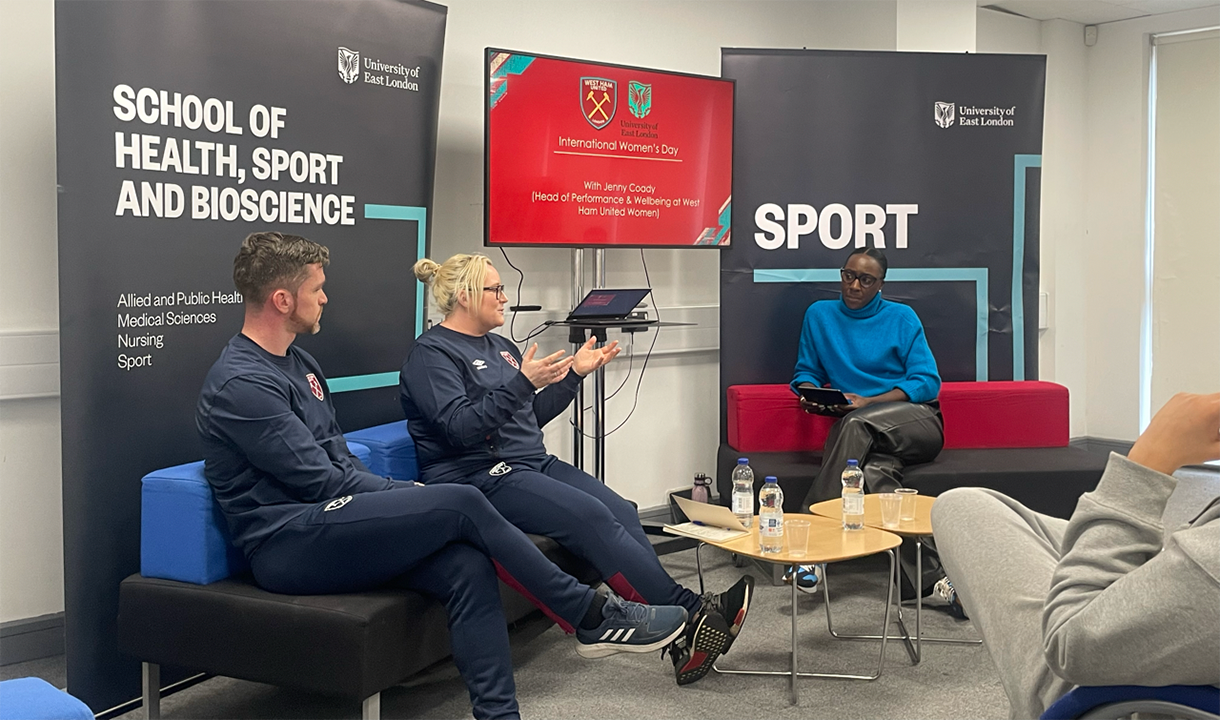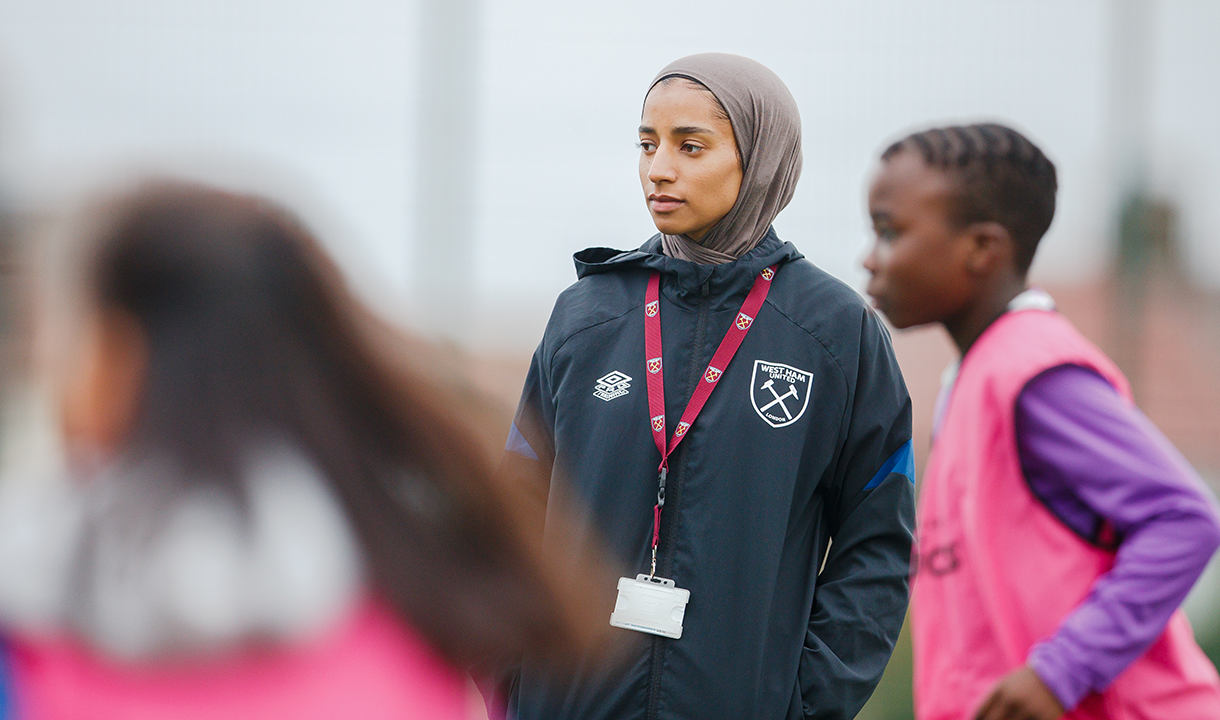International Women’s Day (IWD) is an annual event that has been running for over 100 years and provides a focal point in the year to recognise social, economic, cultural and political achievements of women.
To kick off the Foundation’s celebrations, West Ham United Women’s midfielder Mel Filis joined Najma Shariffu, WHU Foundation Premier League (PL) Kicks Co-ordinator, to answer questions from the girls’ PL Kicks group about her passion for football, career journey and some of her biggest challenges to date.
“I’ve got an older brother, he’s two years older, and basically I just remember from a very young age – I might have been like four or five years old – that I used to get taken to his football matches on a Sunday,” said Filis on where her passion for football arose.
“So, I would be watching him playing and I’d be kicking a ball about on the side lines in my wellies. One day I turned around to my mum and said, ‘look I want to play as well’, so then she brought me down to the local boys’ team because there weren’t actually any girls teams in the area at the time.”
On her way to the Women’s Super League, the England youth International moved from a Centre of Excellence at Milton Keynes Dons to academies at Chelsea and Arsenal, and on to FA Women’s Championship side London Bees before being signed to West Ham United in July 2021.

In answer to a question about some of her biggest challenges to date, Filis said: “I would say my transition from not being professional to being professional. It’s a completely different world.
"When I was coming up through the academies and even through the youth age groups, I found it quite a smooth ride but then as I transitioned, even just to try and sign my first professional contract, at the time I actually thought it was going to happen at Arsenal and then it didn’t happen there so then I dropped down to Championship for a year, and that was quite tough but obviously it was also good learning as well.
“Then when I came to West Ham in the Summer then it happened, but I think probably adjusting to being a professional, rather than aspiring for it. Once you’re there it’s a completely different ball game.”
Recognising how female football has progressed, Filis shared: “Obviously I think it is changing drastically. I can’t remember the exact numbers, but I saw a stat the other day about grassroots football and how the number of girls playing has just rocketed. I’m still quite young and for me to be saying to you that there weren’t many local girls’ teams around when I was growing up. It shows that it’s only recently that there’s been a change but at the same time it shows how quickly the change is happening.
“We’ve got young girls coming to our games and you can see how passionate they are about women’s football I think we need to keep pushing that. I think in the future we’ll have stronger pathways and more players coming through.”
Annually, IWD consists of a theme and this year it is equity which reflects the importance of awareness and understanding that everyone has difference circumstances and they need to be provided with impartiality and relative support, tools and opportunities so that every person is treated fairly.

Ahead of the launch of the Foundation’s new master’s degree, Workplace Diversity in Sport, launching at the University of East London in September, Jenny Coady (West Ham United Women’s Head of Performance and Wellbeing) and Michael Mullane (WHU Foundation Higher Education Officer) took part in a IWD centred discussion led by lecturer Dr Kara-Aretha Graham.
A range of topics - from the importance of a supportive environment, to athlete performance, role models and the importance of representation - were covered during the afternoon session at the University consisting of an audience of students and lecturers.
“I do think that there’s a shift that can be made to understand what the needs are and what the blockers are,” said Coady who expressed the need for more awareness of use of language within sports job descriptions to boost inclusivity, and touched on other ways to actively assist and promote opportunities for females in sport, such as, flexibility in course timings and tackling of gender bias.
Following on from a point Michael made about the usefulness of mentors and mentees for personal and professional development, there was recognition about the importance of female role models, networks, allyship, and being exposed to different environments.
“You can’t be what you can’t see, and I think a lot of women are starting to see themselves, a lot of young girls are starting to see themselves within sport and realise ‘oh I can do that. It’s not just my brother that can play football. I can also play football and I can be successful at it. I can get the same level of accolades that the boys get.’, said Dr Graham.
“You know we watched the lionesses win and girls all over the country are now saying ‘wait I can get that level of respect, I can get that level of kudos’ and I think the representation is so much more important than I think we sometimes give it credit for.”
